AudioCulture
The noisy library of New Zealand music
Te pātaka korihi o ngā puoro o Aotearoa
Opshop
Their hard work paid off. Opshop’s debut album sold platinum while their second album went three-times platinum (their third and final album also joined it in hitting No.1).
Lead singer Jason Kerrison had his first window into the music scene through his father.
“Dad ended up being inducted into the Invercargill hall of fame, mostly for drumming in a dancehall band called Three Plus One, which was three brown guys and a pākehā [his father has Ngāpuhi heritage]. But there was never any compulsion for me to become a musician other than Sunday mornings when I’d find a half-eaten burger left on the kitchen bench with a wad of cash next to it. I thought, it’s pretty cool that this is what my dad does as a night job. My only connection to music was singing in church. I loved hearing everyone’s voices, especially when we’d go to the larger, more grandiose spaces that allowed the harmonics to drift around in the upper echelons of the building.”
Christchurch Years
For his 15th birthday, Kerrison received a cheap hondo bass and this led him to join the school band at St Bede’s College, Christchurch. The music teacher also told him “if you want to play bass, you’ve gotta play violin” so he also spent an undistinguished year in the school orchestra. Kerrison recalls that his closest friend and musical collaborator was guitarist Tim Skedden. “We were big Living Color fans. For me, it was significant because there were so few black people rocking it out. I wondered if I should be playing hip-hop or R&B … But when we found Living Color, we were so obsessed by it we learnt the whole album. Suddenly I became an actual bass player. Glen Common was my itinerant bass teacher (he’s now one of the directors of Smokefree Rock Quest). He suggested we get involved in a local rock quest, so we called our band Vivid, which was the name of the first Living Color album.”
Kerrison then moved to Hillmorton College and played bass in a funk group (D-Funk Express), though was forced to switch to singing when he joined a new group, Hillmotown, as they already had a bassist. Kerrison also befriended two other musicians, drummer Bobby Kennedy and bassist Clinton Harris, both of whom he’d originally met at Rockquest the previous year (their band, Outer Control, included Bic Runga’s sister, Pearl).
After school, these various groups fused together to become Gorilla Biscuit and took up a residency at Dux De Lux doing sets of covers on Friday and Saturday nights. With help from Rob Mayes (Failsafe Records), they also recorded a song, ‘Wish’, which was included on an NZ On Air hit disc.
Slow Progress in Auckland
Kerrison studied broadcasting at Christchurch and took an internship at Mai FM in Auckland (subsequently moving through jobs at TVNZ, More FM, and as an original staff member/DJ at Kiwi FM). He supplemented his income by doing two-hour sets of covers at a local bar (Embargo on High Street) and busked for a living between broadcasting jobs. During the intervening years, Tim Skedden had played in a very early line-up of The Feelers and regularly toured with them as a second guitarist before deciding to form a new group with Kerrison under the peculiar name, Goldfish Shopping Trolley (GST).
Between broadcasting jobs, Kerrison busked for a living
Kerrison was studying ethnomusicology so brought in Ian Munro, a friend from university to play bass, while his high school friend, Bobby Kennedy, joined on drums. GST had some success with their early songs – gaining NZ On Air music video funding for ‘Hey You’ in 2000 and a new recording grant for ‘Put Up A Fight’ the following year. However, it was Kerrison’s chance meeting with a school friend from St Bede’s that really got things going:
“I didn’t even know Matt Treacy was living in Auckland and I walked past where he was playing a gig in Ponsonby. We embraced and he said, ‘mate, you should audition for my band.’ I said, ‘fuck that, you should audition for mine!’ He had a band called Chrome with Adrien DeCroy, who owned York Street Recording Studios. I recall thinking, ‘do I really want to keep being in a band where I’m singing someone else’s songs? Or do I want to be authentic and write my own stuff, even if that means having less resources?’ That’s when I took the bull by the horns and decided I would have a go at having a career writing my own music.”
In the end, Treacy joined Kerrison’s group instead and DeCroy kindly loaned the band some digital recording equipment (a Yamaha O2R ) to do some early demos. The results were promising enough that DeCroy’s label, Siren Records, funded a further set of demos at York Street, though they did make one demand to Kerrison. “They had the wherewithal to suggest we change the name! Much grief and angst followed, though we finally settled on Opshop since we were all skint at the time and we bought all our clothes at opshops.”
Making It Big
Opshop’s early singles, ‘Nothing Can Wait’ and ‘Secrets’, were catchy heavy rock numbers that gained them early radio play. Though the song ‘Secrets’ also remains important to Kerrison for a different reason.
“For me, it was essential on those early releases to capture the wairua of who we were. There was a lot going on in the years after 9/11, like George Bush making that statement that you’re either with us or against us. I was a Noam Chomsky fan, so I managed to find his email and sent him all the lyrics, then asked if we might be able to take a sample off his Prospects For Democracy set of lectures. He got back to me that same night to say he liked the lyrics and to take whatever we needed! It felt like a real coup for me to get something like that on commercial rock radio, even if it ended up quite low in the mix.”
Opshop received some early nationwide airplay for their song, ‘Saturated’, after winning a competition set up by ZM radio station (Project ZM) and even dipped into the Top 40 in late 2003. However, the band’s biggest breakthrough was with an acoustic number, ‘No Ordinary Thing’, which was driven by a melancholic piano line. It hit No.22 on the charts and pushed the album, You Are Here (2004), to platinum sales.
Despite their remarkable success, the next two years presented new challenges for the group. One was the distraction of having Kerrison fly to LA as a potential contestant for the TV show, Rock Star: Supernova.
“I was very clear to everyone that even if I got through to the last round, I’d say, ‘no, I’m good, I’ve got my own band.’ It was really just an opportunity to hype my own band while having a cool experience doing it. But it turned out I didn’t get that far anyway, I only made the final 16 [only 15 contestants were chosen]. They put us all through IQ tests and psych evaluations, but they really wanted you off the ball. I was meditating back then so my crazy had quietened. They said, ‘we’d really like you on the show, but you’re like this rock Buddhist, we need more ups and downs.’ I was like, ‘sweet as.’ And they’re like, ‘that’s exactly the problem! We need more drama.’ ”
More disruption came when Munro returned to his home country of Britain (he was replaced by Kennedy’s old bandmate, Clint Harris) and Skedden quit the band to focus on his family. Kerrison found he had a big hole to fill in the band.
“Tim is such a natural, gifted player on guitar ... Suddenly the guy who I’d always had next to me, literally my right-hand man, had dissolved and the onus was on me to write the songs entirely. At the same time, when it comes to the lyrics, I do feel like they’ve got to come from me for me to sing them authentically. At least, that’s where I start from and then I’m open to people providing options. I also realised just how important the other guys were after that process. Because to me, that record ended up being some of our best work.”
KERRISON: “I WAS MEDITATING BACK THEN SO MY CRAZY HAD QUIETENED.”
The pressure was also ramped up by having a big name producer from overseas, Greg Haver, working on the album. To make matters worse, they discovered during pre-production that they didn’t have enough songs.
“Greg was very frustrated. He had to do sound with Manic Street Preachers in Japan and said, ‘we have seven songs, you need at least another three or four before I get back in two weeks. I don’t care what you’ve got, send them to me.’ So I ended up looking through songs that were in my trash pile and one thing I found was ‘Maybe’ which was written when I was in LA for Rock Star Supernova. I was outside an audition and Tommy Lee from Motley Crue asked what I was listening to. When I told him it was Snow Patrol, he said, ‘I like that band, reckon you could write one like that?’ I figured I’d give it a go. We were in this sequestered environment where you weren’t allowed out of the hotel, so I went upstairs to my room and wrote ‘Maybe’.
“Another song I found was ‘One Day’ which had been inspired by something I’d heard on National Radio while driving back from Tauranga on tour – Paul McCartney said ‘Let It Be’ was him trying to write from the perspective of Ray Charles. It seemed like an interesting method. My partner at the time had a big barney at me because she hated not getting to see me when I was away on tour. I thought, ‘I’m annoyed and I’m going to use that technique to try to write like the Eagles drummer, Don Henley.’ I sat down and as soon as I finished it, I felt the release from the process and chucked it in the corner. My partner found the ball of paper when she was cleaning up and fortunately put it on my lyrics pile. I played ‘One Day’ to Greg and instantly he said, ‘that has to be on the record.’ ”
In order to make up for Skedden’s absence, Kerrison joined Harris in trying to add keyboard parts to some tracks. “We’d have to record the chords one at a time and then sample it in because it took me ages to get my fingers in position. I remember the frustration on the face of the producer, he’s worked with Manic Street Preachers and Super Furry Animals, but he is being forced to waste time watching me do that! He has impeccable patience, that man. His involvement was very good timing for us because his mastery of sonics really helped. If you compare the two records, you can see how heavy the influence of Tim was on that first record, he just likes his guitar set to 11. Matt, not so much. Whereas Tim was a big Tool fan, Matt was a Dire Straits fan, so you can hear the difference.”
The resulting album, Second Hand Planet (2007), was a phenomenal success, hitting No.1 and staying on the charts for a year-and-a-half, eventually reaching three times platinum sales. The almost-forgotten songs that Kerrison uncovered ended up being Opshop’s biggest hits: ‘Maybe’ hit No.3 and ‘One Day’ hit No.4. ‘One Day’ went on to be named the biggest-selling local single of the year and the one with the most airplay (while Second Hand Planet was recognised as the best-selling album).
Opshop were now amongst the most popular bands in the country and undertook large-scale tours each summer, especially once they began playing regularly at the Winery/Vineyard tours set-up by MoreFM. The band also took time out to record a charity single for the Raukatauri Music Therapy Centre; a cover of Dave Dobbyn’s ‘Beside You’ recorded with Anika Moa.
The End and New Beginnings
During the promotion for Opshop’s next album, Until The End Of Time (2010), Kerrison caused a stir by admitting that he’d been inspired by reading about the Mayan Calendar and its emphasis on 2012 being a time of significant change (the media tended to present it as a doomsday prediction). This tied into Kerrison’s own concerns about climate change (already covered on Opshop’s 2007 song, ‘Noah’) and his belief that people need to be prepared for natural disasters. Kerrison found he was greeted with great scepticism by those in the media, especially when he brought up the sustainable community he was setting up with his friends in Northland.
“I felt it was a good opportunity to leverage the media to talk about preparedness. That’s why I started talking about an ark made of monolithic domes, I knew that was something that would get their attention … There’s a song on the album called ‘Monsters Under The Bed’ which is about not talking about things that might give you nightmares. I did feel a sense of responsibility that if the media were going to take it out of context to be about the end of the world then kids might hear this and it might disturb them. At the same time, it would be worth it if it meant a family might talk about tsunamis, earthquakes and other natural disasters because then at least they might consider what their preparedness plan might be and whether they’ve got Bug Out Bags [survival kits] ready to go.”
The media’s antagonism did little to impact on the band’s popularity
In the end, the media’s antagonism did little to impact on the band’s popularity and Until The End Of Time hit No.1 on the charts, supported by three Top 40 singles. The band also gained more exposure from one of these hits, ‘Madness and Other Allergies’, when it was licensed for New Zealand’s Next Top Model (the two finalists appeared on the video as one of their last challenges).
Kerrison also began to teach himself production on the side, completing an online course through the Berklee College of Music. His new interest in recording techniques coincided with a chance meeting with the hip-hop producer, Jamie Greenslade (aka Maitreya), at the APRA Silver Scroll Awards. The pair, who had known each other while working at Mai FM, agreed to work together, eventually forming Babysitters Circus in 2011 and penning a surprise Top 10 single, ‘Everything’s Gonna Be Alright’ (with Skedden contributing guitar ideas and Selwyn Leaf on additional vocals). The song had a second life when a Dutch radio station (Radio 538) chose it for a Flashmob advertising campaign held across the Netherlands. As a result, the song reached No.23 there, as well as entering their Top 10 dance chart. Kerrison was overjoyed.
“One of the most bizarre experiences for me was playing in the centre of Amsterdam in the Museumplein, the museum quarter of the city. Once a year they have a huge festival for bookers that everyone can come to. Our rule was never to take it seriously, take the music seriously, but never take ourselves seriously or we’re going to end up being fuckwits. So we decided to play every show in our pyjamas, because if I look across the stage and see my mates in their pyjamas, then I cannot take it seriously (though we did get quite flash onesies over time!) So I remember being dressed in a onesie with a cape on and a Zorro mask all while DJing to 20,000 people. We had these gorgeous girls from this band, Zazi, dancing with us; they’d covered the song and given it another life in Europe. I felt like I was a dream. When I was busking between jobs and hoping for a career in music, this isn’t what I envisaged.”
In subsequent years, Kerrison had high profile roles on TV as a judge on New Zealand’s Got Talent (2012) and X Factor (2015). In 2012, Opshop had another Top 40 single, ‘Never Leave Me Again’, but during the following year Kerrison decided he needed a change.
“We’d been together 10 years at that point. I didn’t want to be put in a position where that band was going to define who I was. I just wanted some respite from that, so I let the guys know. I wouldn’t say it went down that well because not everyone felt that way. But when I first started playing music I wanted to be a bass player, not the lead singer who gets asked for selfies every 10 seconds. That’s when I started getting more involved in production.”
Kerrison used his first EP, #JKEP1, to experiment with pop production and synth sounds. He followed this with a more experimental work (#JKEP2) where the instruments were tuned to 432Hz (rather than the standard 440Hz) and he used sacred geometry to decide the length of each track, so the EP opened with a 43 second track then a 52 second track and so on, before ending with a final track that was 9:08 minutes. These experiments helped him clear away the baggage of his past music career.
“The EP project is just me and my muse. But I’ve also realised that it’s actually okay to write pop songs. I have this proclivity to write hooks that get stuck in people’s heads so much that they risk getting irritating. It’s up to me to regulate that gift, not be shy of it and just embrace it. When it came to writing the first single off my solo album, ‘A Wonderful Way’, I just wanted to come up with something that sounded warm and gave people an opportunity to feel good. That’s part of my job as an artist, giving people an opportunity to escape for three-and-a-half minutes. But there’s still a responsibility that comes with that. You could write about tits and arse or you can write about real emotions. I know what I’d rather do.”
Opshop had a hiatus after performing at Homegrown in 2014, returning in March 2018 to play at the same festival. Drummer Bobby Kennedy told Newshub, “We didn't realise what we had at the time, if you know what I mean, so it feels really good to have people amping to see us play again.”
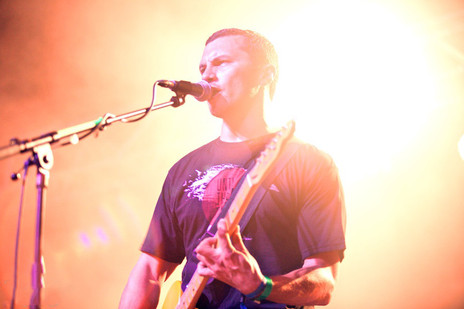
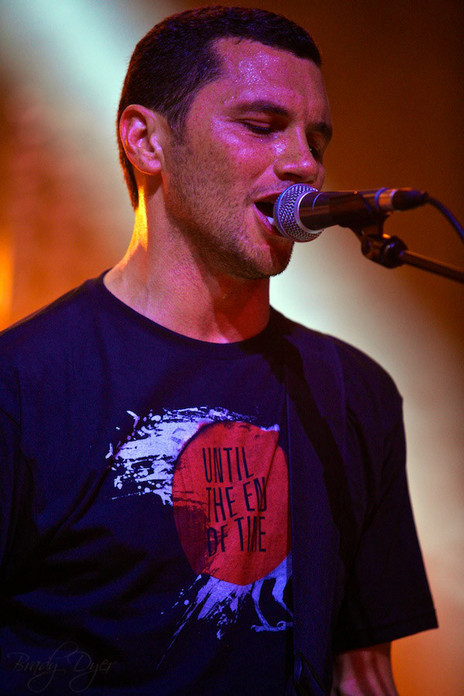
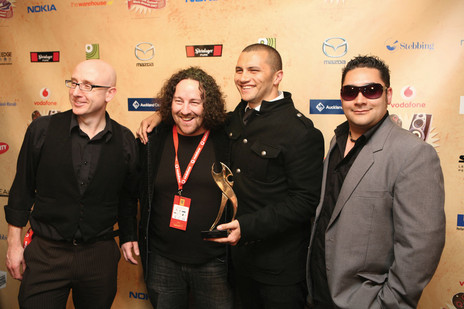
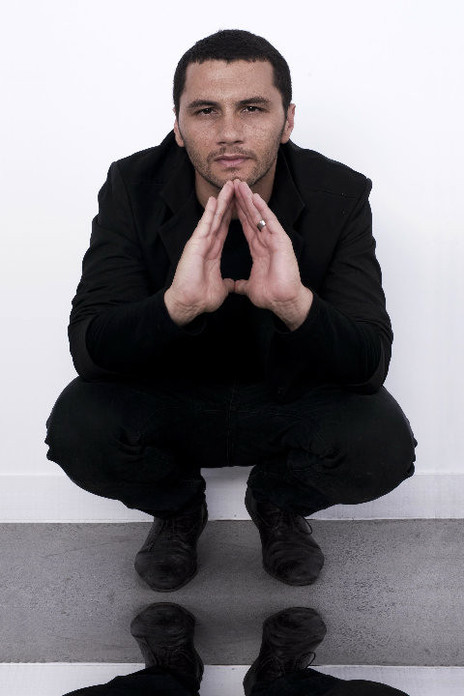
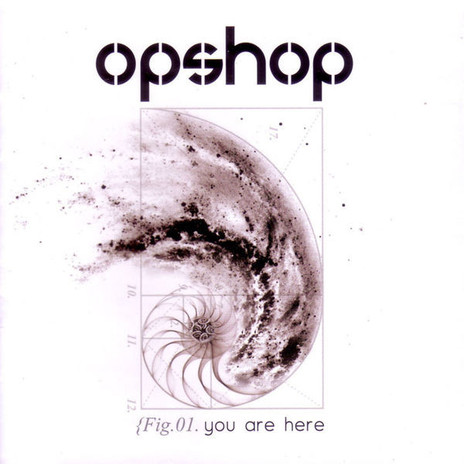
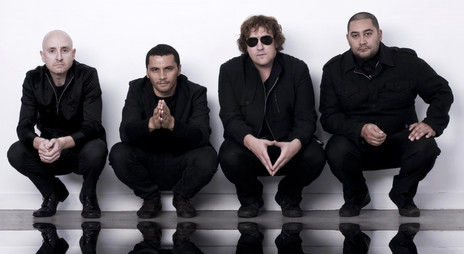
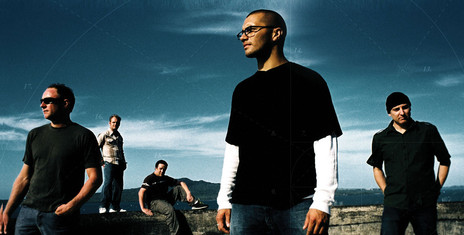
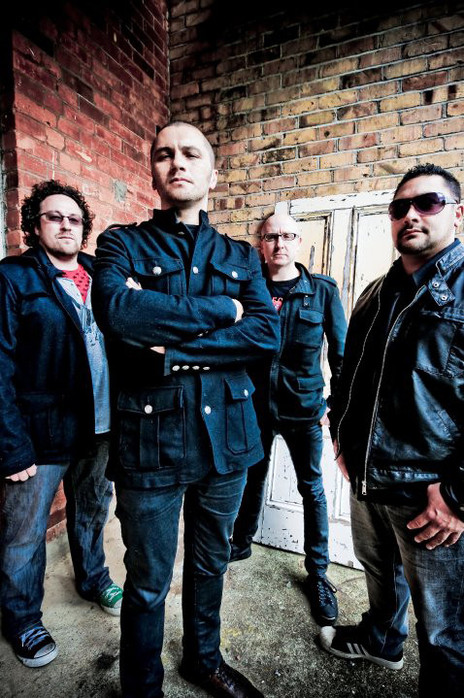
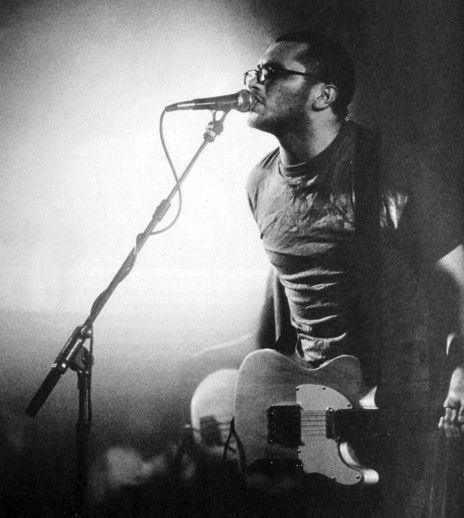
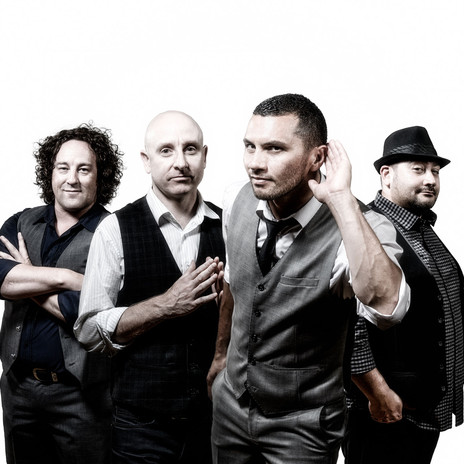
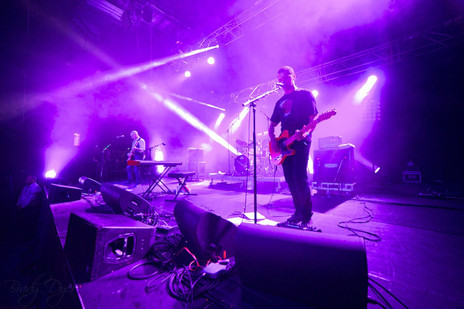
Jason Kerrison - vocals, guitar
Bobby Kennedy - drums
Matt Treacy - guitar
Clinton Harris - bass
Tim Skedden - guitar
Ian Munro - bass
‘One Day’ also features the vocals of Dianne Swann.
When Opshop first toured New Zealand, they couldn’t afford a support act so the band dressed in masks and created an off-shoot band, The Ambassadors, who played incognito sets of dance-y jazz music before re-taking the stage as Opshop later in the night.
During the tour for Second Hand Planet, Kerrison tried to research all the towns they were playing in and the band wrote a song for each place on the day of the show (along with support act, Luke Thompson). These 17 songs are available on the extended version of the album.
After the first major earthquake in Canterbury in 2010, Kerrison worked with Paul Ellis to create the Band Together concert in Hagley Park , Christchurch, to raise spirits in his hometown. It drew 100,000 people and was streamed live on TV. In 2011, he was awarded the New Zealand Order Of Merit for his musical and charitable work. He also appeared on the “Team Ball Player Thing” single that raised money for Cure Kids (in 2015).
Siren
Rhythmethod
OpshopMusic
Visit our sister site
NZ On ScreenMade with funding from
NZ On Air


